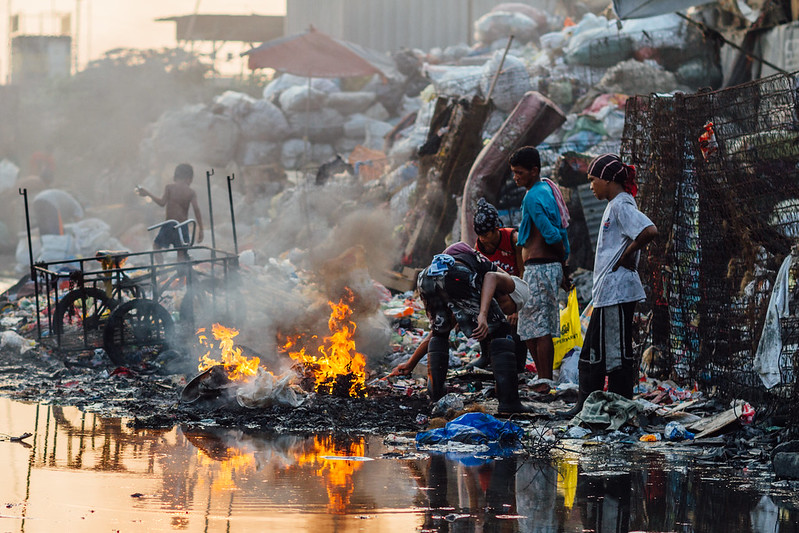The pandemic has brought into sharp focus the disparities that exist within society, and it has exacerbated them. Certainly, even before COVID-19, these existed, albeit more quietly, yet no less pervasively. Graduates earned 60% more than non-graduates in the UK, and 80% more in the US. However, we have seen mass mobilisations by governments to ease financial burdens of many, showing their power to quickly intervene to mitigate distress. How can governments use COVID-19 to address social inequality in their countries?
—
Some areas where this has been made abundantly clear are:
- Access to green spaces– green spaces have been proven to be beneficial to our mental and physical health. However, in the face of lockdowns and other measures to contain the virus, unequal access to these spaces has been made more known. In Germany, a study unveiled the inequalities in access to urban green spaces regarding income, age, education and numbers of children in households, while another study conducted in the UK showed that the most deprived wards in the UK had, on average, a fifth of the area of green space available to the wealthiest wards.
- Health access- a 2018 report by the European Commission shows that the lowest income groups are among the most disadvantaged groups in terms of access to healthcare, saying that women and migrants both face particular difficulties. This is mirrored by analysis from the WHO, who says that “there is ample evidence that social factors including education, employment status, income level, gender and ethnicity have a marked influence on how healthy a person is.” These inequities exist between countries and regions, too. 95% of tuberculosis deaths occur in the developing world, while 87% of non-communicable diseases occur in low- and middle-income countries. In the case of COVID-19, seeking out healthcare is pushing many into poverty and is threatening to undo much of the progress made in the developing world in terms of job creation and obtaining an education.
- Digital divide- millions of people being confined to their homes to work remotely has highlighted gaps in access to technology and the internet. In India, nearly 50% of people don’t have access to the internet and in some rural areas, classes have been delivered by loudspeaker. In Africa, this percentage is much higher, posing risks to hundreds of thousands of school children in the region who already face difficulties in receiving an education, such as poverty. Further, highly educated and skilled workers are more likely to work in jobs where remote working is a possibility, while lower-skilled workers are more prone to job losses or reduction in hours.
You might also like: How Some International Treaties Threaten Our Ability to Meet Climate Targets
What Can We Do?
In the wake of the pandemic, many countries have unveiled public policy responses aimed at supporting citizens facing economic hardships, through being furloughed, having their hours reduced or losing their jobs altogether. While they won’t last forever, they show the power of government to intervene to mitigate distress.
Firstly, the healthcare system in the US needs reform; many people lost their health insurance along with their jobs, meaning that many of the hundreds of thousands who were hospitalised are unable to pay their medical bills.
Secondly, according to Business Insider, in the US, 40 million Americans filed for unemployment during the pandemic, while billionaires saw their net worth increase by half a trillion dollars. One of the reasons for this is that the government disproportionately gives more aid to larger companies. Hopefully, this will bolster demands for more regulation and that their companies pay more taxes. There is also an urgent need to rethink how labour markets work.
While high-income countries have quickly mobilised massive public resources in response to the economic crisis as a result of the pandemic, lower income countries are unable to do so. High-income countries, International Financial Institutions (IFI) and regional economic bodies should mobilise adequate resources in support of lower-income countries in order to avoid similar or worse economic crises with negative long-term implications for agriculture, food security, nutrition, food systems and broader socio-economic development.
In terms of providing this aid to low-income countries, processes to ensure that no corruption takes place is vital. In Africa specifically, there are billions of illegal dollars that are funnelled abroad, often with the help of complicit or negligent banks, lawyers, accountants and real estate agents.
Additionally, existing inequalities need to be recognised in the public response- explicitly acknowledging the heightened health and economic vulnerabilities of specific socioeconomic groups- and addressed with targeted measures. Policies should take into account the constraints faced by the most vulnerable and marginalised groups in responding to the pandemic. While meeting immediate needs is naturally the priority, planning needs to begin in terms of how to promote an inclusive and equitable process of economic recovery. Recovery programmes that do not address these inequalities run the risk of reinforcing and deepening inequalities into the future.
Finally, it is hoped that COVID-19 will create reforms in governments themselves; in the US, president-elect Joe Biden has nominated officials to his cabinets, such as Janet Yellen and Cecilia Rouse, who have long been concerned with reducing inequalities. The Financial Times has termed this the “time for activist government.”
Increased social inequality from COVID-19 will have long-term consequences. Greater inequality reduces the impact of economic growth on poverty reduction, meaning that eventual economic recovery may have less impact on the poor and other marginalised groups, potentially leaving them worse off and facing greater inequality than before. If social inequality is not addressed, economic recovery will have less impact on reducing poverty brought on by COVID-19.
Featured image by: Flickr

















